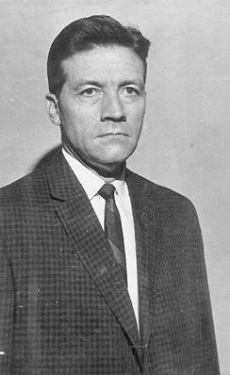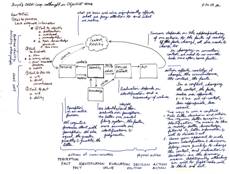Notes on Destruction and Creation
We create and update the concepts that guide our actions. Life requires this. We not only change the world, we observe it and update our concepts.
Life as a human requires the ability to act on volition, not by compulsion. Volition is individual. The standard of value is our capacity for individual action.
Cooperation and trade are selfishly motivated by increasing our capacity for individual action. Groups depend on their individual members.
Cooperative relations are dynamic. "General welfare" is the welfare applicable to all individuals.
Decisions require concepts. Concepts must be updated as our knowledge changes.
We form concepts by integration and specialization.
We use concepts and principles by deduction, applying them to specifics.
Concepts are general; particulars specific.
Anti-Platonism: We can consider particulars apart from the concepts we may currently classify them by.
We can form new concepts on the basis of common characteristics of particulars. We can rethink our classifications. Concepts are man-made but not arbitrary.
Creativity is putting particulars together in a new way.
"Creative Induction" == philosophical induction.
Look at the particulars.
Concepts represent reality.
Non-contradiction. Fact-based. Reduction validates induction.
Find and correct logic errors. It is vital that one's concepts match reality.
But concepts have a risk of being treated as closed (not open-ended).
We may need to completely rebuild our concepts. [This implies that we are never certain. Contrast this to Rand's contextual certainty.)
One cannot prove the truth of a set of ideas only by reference to those ideas. [Godel says that one needs additional ideas, but this is still rationalistic. If one starts with reality and induces, one never reaches Godel's difficulty of validation through self-reference.]
Best case: concepts are contextual and open-ended. Reality rules.
Our ability to observe learn about reality grows as our concepts improve.
Indeterminacy and Uncertainty: As we interact with systems, we change them. To the extend that we have changed them, we introduce uncertainty about their current state. The larger the "mass" of the observed system relative to the means employed to test it, the more we can observe it without altering it; the smaller the mass, the more the observer's actions are part of the system under observation and changing it.
Entropy and the Second Law of Thermodynamics: We cannot improve the order, truth of our knowledge through mere introspection. Mere introspection degenerates to randomness.
The solution to these problems lies in knowing the context conditioning any item of knowledge, constantly observing reality, on a schedule appropriate to the rate at which contexts of prior knowledge may change (1/"mass"), and updating our knowledge. Form concepts by the similarities among the objects they denote. Broader and more general concepts will subsume earlier, narrow concepts.
Why does Boyd constantly cite the ideas of irrationalists such as Hegel? I think because Boyd wants philosophical support for a dynamic system, as opposed to frozen Platonism. He did not have Rand's concept of the objective.
My conclusions: Boyd emphasizes the contextual nature of knowledge. It is important to know what the context is conditioning any item of knowledge, and continually observe reality so that if new knowledge obsoletes an existing context, one can induce knowledge appropriate to the new context. Note that Rand stresses the contextual nature of knowledge, as well, and is much more philosophically exact. Rand emphasizes that new knowledge does not make old knowledge false, provided one holds the context. New knowledge adds to what is known, perhaps expanding the context so that the former knowledge is now seen as a specialization of a wider idea. Boyd appears more to be saying that the older context becomes obsolete. This make be valid in the case of something like combat, where holding a belief based on a context that no longer exists is the fatal mistake. More broadly, however, many concepts are much more enduring, and some, such as philosophical ideas, have as their context all of reality or all men at all times. Perhaps in Boyd's terms based on Heisenberg's principle, these have "high mass" and so our certainty of them is complete. One of Boyd's points, then, is that one must know the context conditioning any item of knowledge and also the durability of that context, that is, how certain one is that the context will not change, so that one knows when to check it again; for rapidly changing contexts one much check frequently.
Links
- Destruction and Creation – John Boyd integrated all of his ideas about effective, reality-based action in dynamic contexts into this, his final paper.
- John Boyd @ Wikipedia – Biography of John Boyd, military strategist and creator of the OODA loop.
copyright © 2024 Andrew Layman, all rights reserved, 1/15/2024 6:13:07 PM, Topic: Notes on Destruction and Creation, http://www.strongbrains.com

